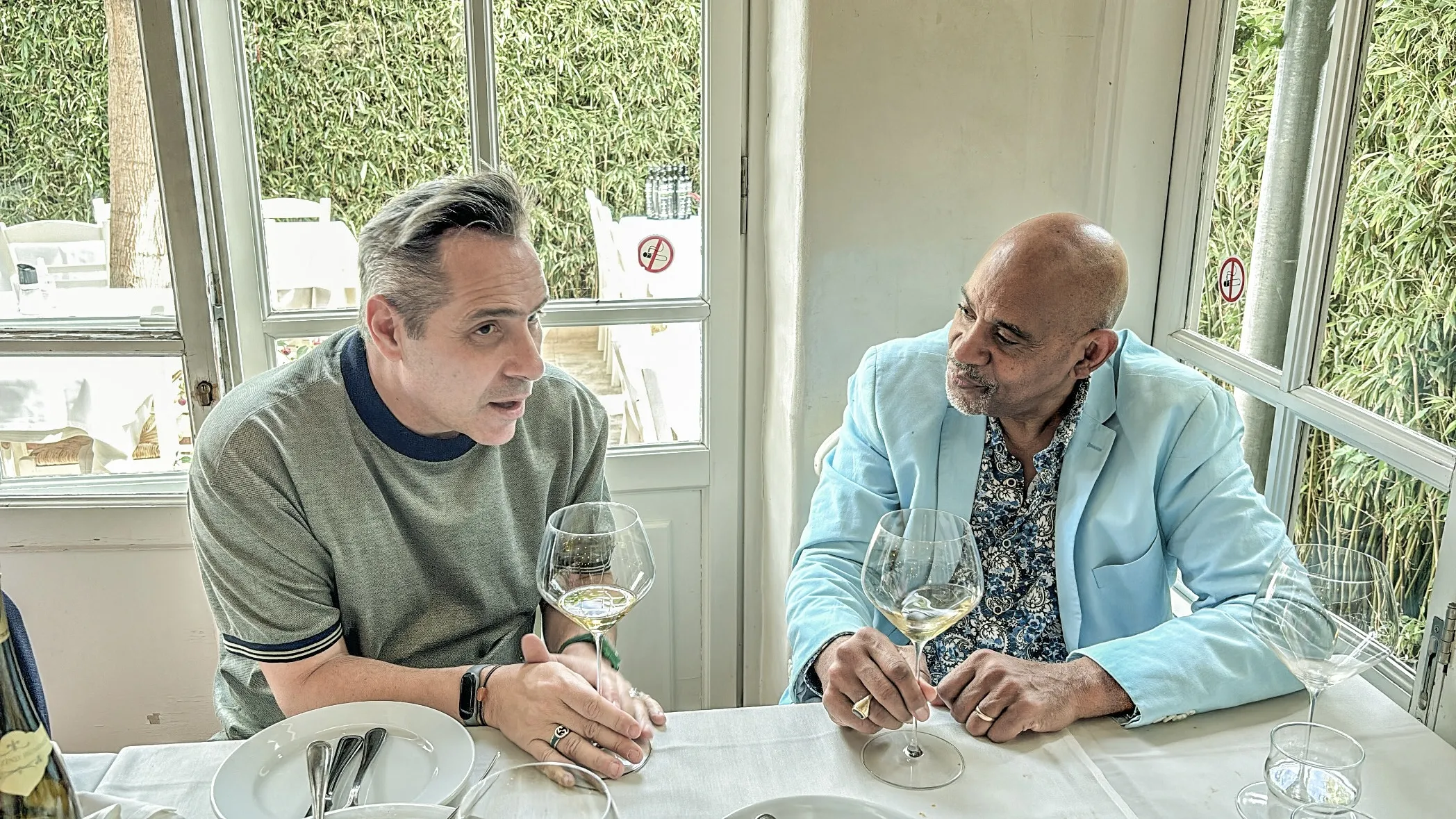
Stepping out of the box, an interview with jazz singer Allan Harris
By Yiannis Karakasis MW
Walking into the cosy ambience of Travolta Restaurant in Athens, I couldn't help but feel excited about my upcoming chat with the world-class jazz singer, guitarist and songwriter Allan Harris and his wife, Pat Harris. He is known for his soulful, velvety voice, which, according to the Miami Herald, "projects the warmth of Tony Bennett, the bite and rhythmic sense of Sinatra, and the sly elegance of Nat 'King' Cole." Allan has carved a niche in music with his heartfelt melodies and timeless classics. As we settled in for our conversation over great food and exquisite wines, I found myself drawn not only to Allan's musical genius but also to his warm personality and passion for jazz.
Subscribe to Continue Reading
This premium blog post is restricted. Subscribe to get access to all blog posts and unlock our complete library of Greek wines, varieties, and expert insights.
- Email updates (1–2 / month)
- Access to free posts
- Special subscription offers
Aficionado
For enthusiasts and trade professionals who want full article access
Subscribe Now- Full access to all subscriber-only posts
- Full access to wine reviews and grape varieties sections
- Executive summaries for major features/reports
- Reliable, focused information on Greek wine, in an international voice
Aficionado Premium
For advanced readers, sommeliers & buyers needing deep documentation
Go Premium- Everything in Aficionado, plus:
- Full access to all Reports (6 to date)
- Access to approximately two new reports per year
- Executive summaries for major features/reports
- Reliable, focused information on Greek wine, in an international voice
Professional
For importers, retailers, restaurants, producers, and trade press
Get Professional- Everything in Aficionado Premium, plus:
- Publication rights for reviews and short tasting notes (up to 50 words)
- Article excerpt rights (up to 120 words, up to 3 excerpts/month)
- Priority support (email) for usage/attribution questions
- Mandatory attribution required with active link where possible
Already have an account?
Sign in here